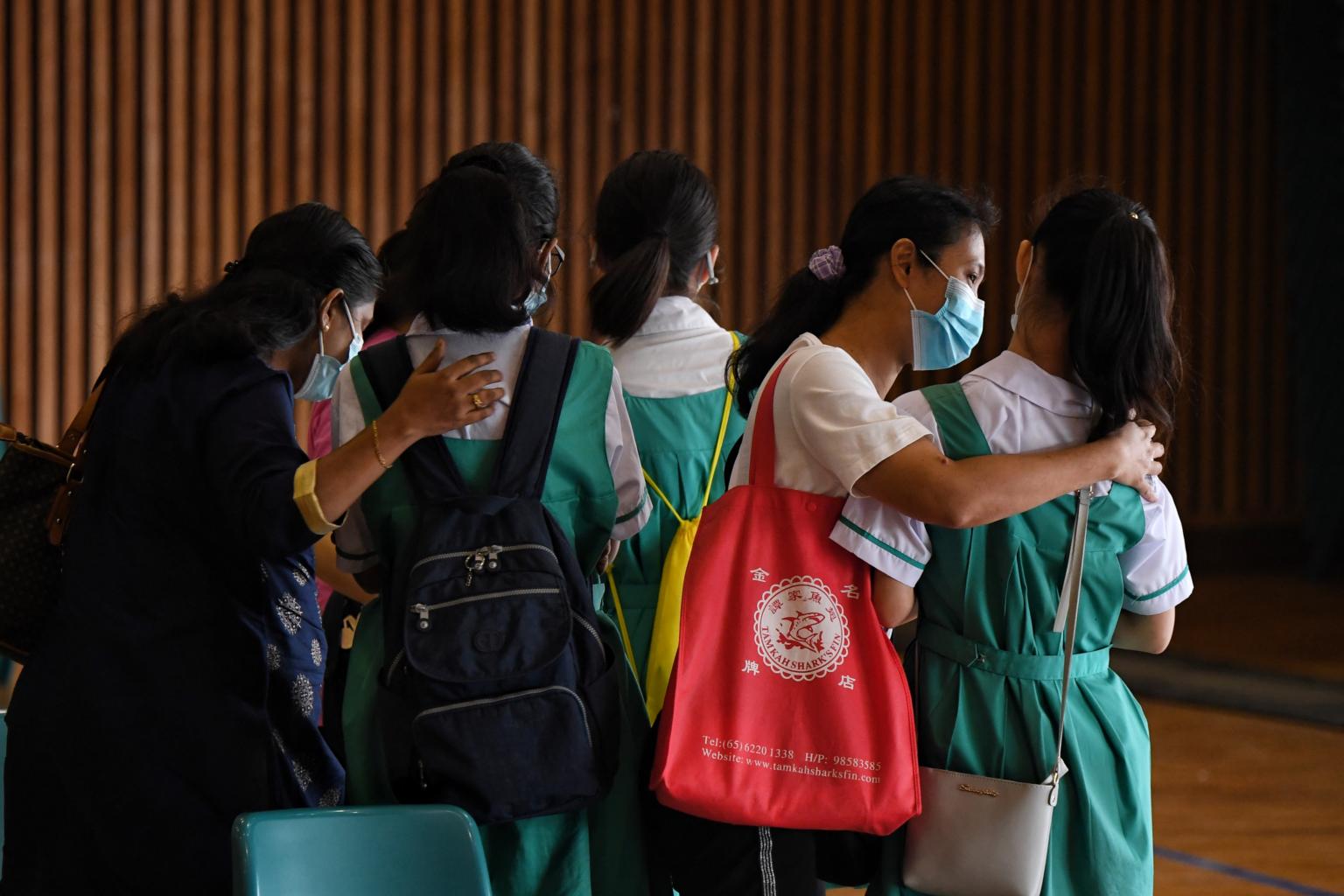Some parents unsure new PSLE scoring system will reduce stress
Sign up now: Get tips on how to help your child succeed

Parents are worried that fewer possible scores under the new system will mean more ties among pupils.
PHOTO: ST FILE
Yeo Shu Hui, Ng Wei Kai
Follow topic:
SINGAPORE - The cut-off points for secondary schools under the new Primary School Leaving Examination (PSLE) grading system are out, but there is no telling if this will lead to higher or lower stress levels among students and their parents.
More than half of the 45 parents The Straits Times spoke to said they were concerned the new scoring will not help ease the competitiveness of the exam, with some saying they are now considering Direct School Admission (DSA) for their children, after having seen the simulated entry and cut-off points.
Housewife Angeline Teo, who has one child in Primary 6 and another in Primary 4, said: "I didn't find the scores reassuring... In fact, it made me more anxious about how it may affect my son's chances of getting into his father's and grandfather's alma mater.
"Now we are going to redouble our efforts to get him a place through DSA and I have signed him up for DSA interview prep class during the mid-year school holidays."
Ms Michelle Ang, a former director in her 40s, said: "Looking at the cut-off points, it seems like you have to do very well to get into a decent school."
The single mother, who left her job in the engineering underwriting sector to help her daughter prepare for the PSLE, said she was concerned that students would now have to chase the next achievement band rather than the next mark.
She added: "The differentiation of just one mark seems to make a huge impact on the child now."
The Ministry of Education (MOE) released the new scores last week, with schools to be set in broader bands under the new system.
MOE director-general of education Wong Siew Hoong last Tuesday said the aim of the new grading system was to help students stop having to chase the last mark.
Under the new scoring system, students will not need to achieve a perfect score to enter top schools, the most demanding entry score being 6 rather than a perfect 4.
Achievement Level 1 is a score of above 90 marks.
Their PSLE score will be the sum of their four achievement levels for their four subjects.
The new system means that more children will end up with the same scores, as there are now only 29 possible scores, compared with more than 200 possible aggregate scores in the previous system.
However, parents are worried that fewer possible scores will mean more ties among pupils.
Social media executive Liu Mei Wa, 42, said: "It's even more competitive as it's likely that many students will have exactly the same points, and one then has to compete for a place based on balloting.
"I feel that the change is like putting old wine in a new bottle. It is equally stressful."
Ms Liu said she is planning to have her son, who is now in Primary 5, apply for DSA to the School of the Arts to pursue visual arts.
Madam Jeeva Raj, 38, an accountant who has taken no-pay leave to prepare her son for PSLE, is also looking at DSA as a route towards securing a place in their preferred school.
She said: "When they released details of the new scoring system for PSLE, I decided that DSA is the way to go, because to me that's a surer way to get into a school that offers the Integrated Programme.
"If I leave it to his PSLE results, then he stands a lesser chance because many more students will tie for a place."
Other parents are upset that the new cut-off points appear to immediately discount students diagnosed with learning differences and who are exempted from taking mother tongue as a subject.
Entrepreneur and mother of two Tjin Lee, 47, said: "The indicative entry points are disappointing because my son with dyslexia will automatically be penalised with 6 to 8 points because he is exempted from mother tongue."
She added that the penalties automatically disqualify her son for some schools. "The penalty of 6 to 8 is already more than the cut-off for some schools."
But some parents, like finance clerk Suganthi K, said she remains hopeful that the new system will help reduce the need for children to chase every last mark.
The mother of three, who has two older children in Secondary 2 and 4, as well as a younger daughter taking the PSLE this year, said: "For my older children, to get into the school they wanted in our area, the exam was always about gunning for that extra mark.
"Now that there will be less differentiation between students, I think it will be much less stressful."
Her daughter Elakiya hopes to go to a school that will let her pursue her interest in basketball.
Housewife Sally Ng, 40, said the new grading system needs to be run through before Singaporeans form their judgment.
She said: "Sometimes change is good. We need to adopt and monitor further. I believe adapting to changes and lifelong learning is more important."
Correction note: This article has been edited for accuracy.

